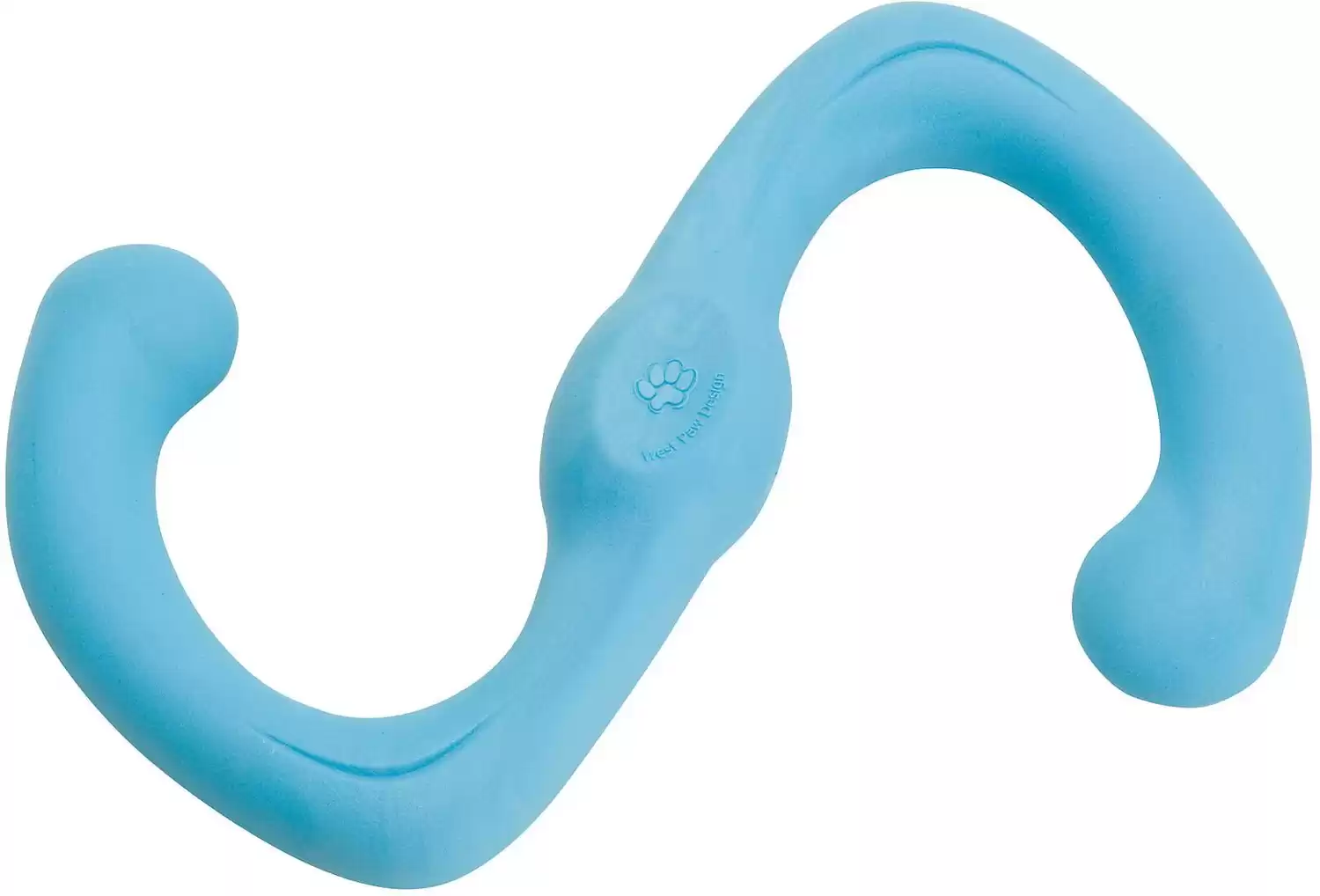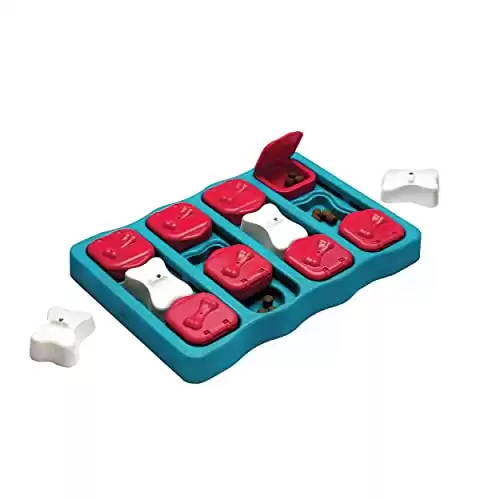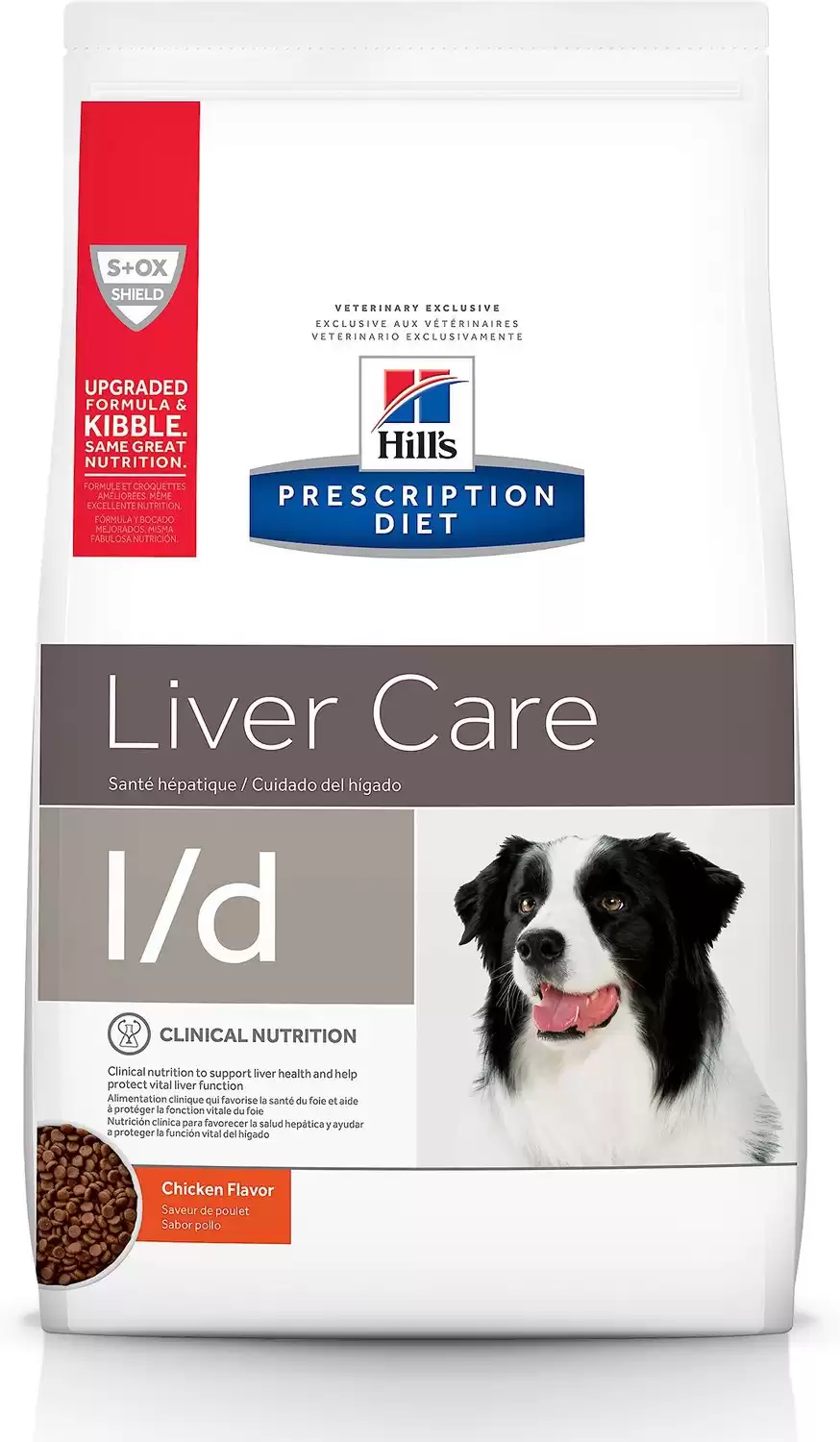If you have ever walked into a room and seen your beloved canine staring intently at the wall, it can be genuinely a strange sight. We all know as dog owners that our fluffy family members have some odd behaviors, and each habit they have typically had its reason for doing it. This behavior is no exception.
There are several reasons why your pup might be exhibiting this behavior, and no, it’s unlikely that it’s a ghost, so you can take a breath, put out the sage, and take the local ghost hunter off speed dial! The
behavior can range from being just that, a behavior out of boredom, to a medical condition. It’s essential to also pay attention to how your dog is acting to rule out whether you should consult your pet’s veterinarian. In most cases, the good news is that it’s often not a medical condition that is causing them to stare at the walls.
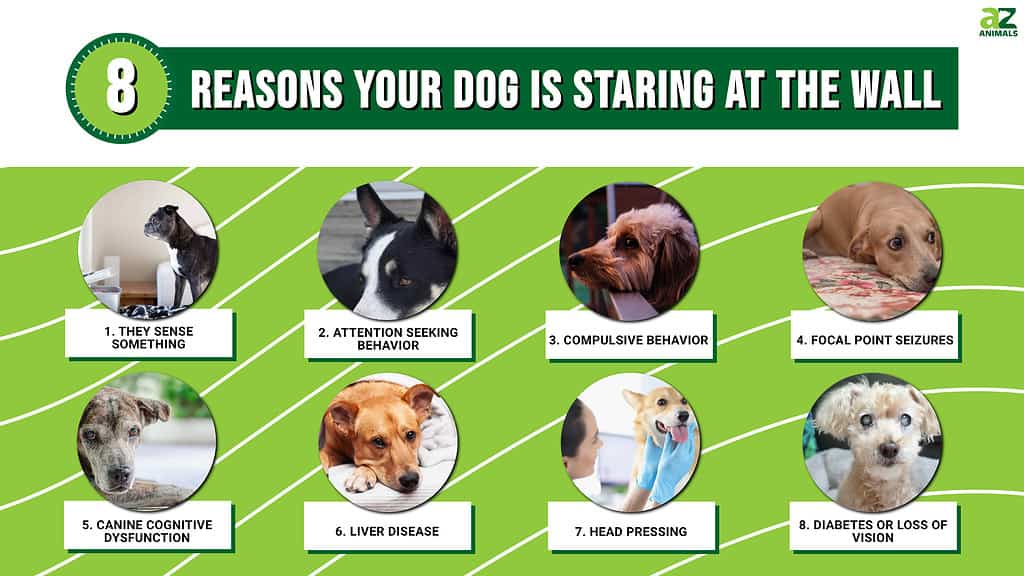
1. They Sense Something
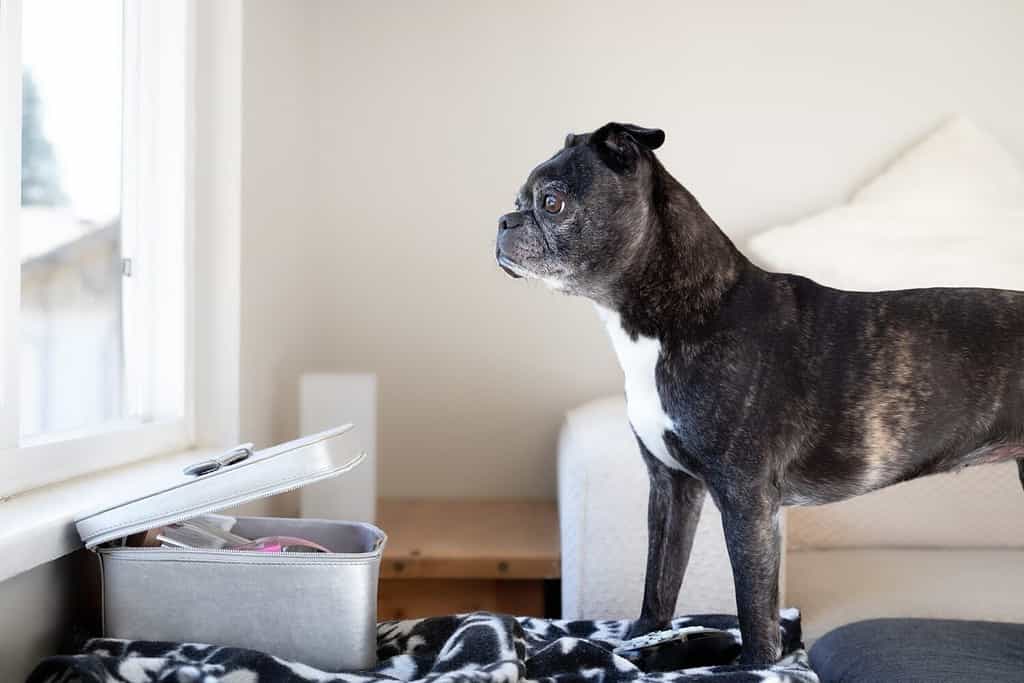
Could your dog’s staring mean it senses something peculiar?
©sophiecat/Shutterstock.com
No, as I said before, It’s not probable that they are sensing an otherwordly presence, but their heightened hearing and smell could be picking up something, and they are trying to place the sound. If they are sitting there intently focused on a specific spot, with their head tilting side to side, ears perked up, listening, I would try sitting with them to see if you can hear anything. You might even want to press your ear against the wall, and you might just find that you have visitors inside the walls. If you watch long enough, your dog might show you precisely what that pest is.
When it’s sunny out and warm, sometimes the shadows on the wall can distract an understimulated dog. Try adjusting the curtains and see if that changes their behavior. Sometimes they can be interested in the moving shadows on the wall.
2. Attention Seeking Behavior
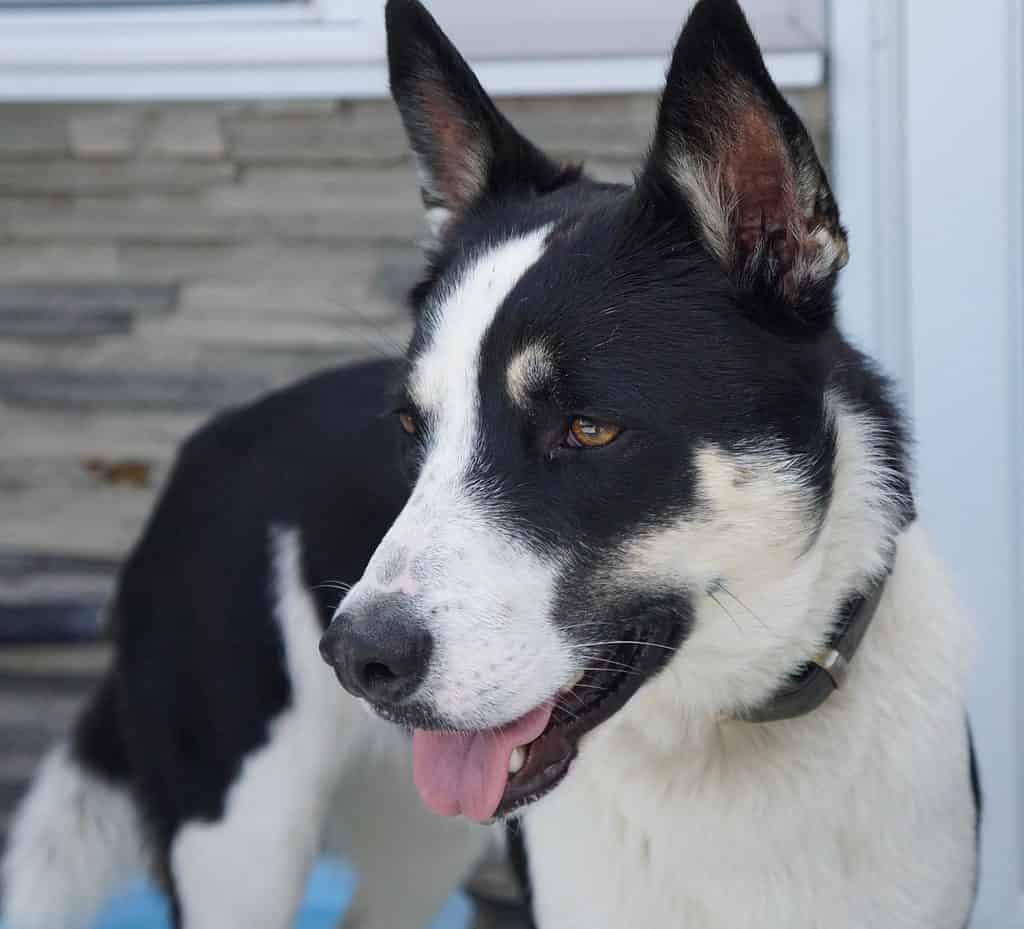
Your dog could be staring at the wall to get your attention.
©Primrose2020/Shutterstock.com
This strange behavior could be your dog’s way of telling you they want some much-deserved attention. Has your dog stared at the wall before, and you approached them to give them some love or called them to take them for a walk? It might have reinforced the behavior, and they think that staring at the wall will convey to you, “Hey, I’m bored!”
My friend had a Corgi that when she and her partner got into an argument, he would get up and go to the corner of the room and stare right at the wall. That was his way of saying he was uncomfortable and wanted them to stop and give him some affection or let him out of the room.
There’s a way to rule out if it’s the case for their physical and mental stimulation. Take them for a long walk, give them a dog-safe chew toy, or play an interactive game, like tug of war. Mental stimulation is critical. An under-stimulated dog can form many odd behaviors.
- Designed and made with Zogoflex
- Incredibly lightweight
- Recyclable and floats in water
- Dishwasher safe
3. Compulsive Behavior

Dogs that are stressed or frustrated can develop habits like chewing, biting their limbs, or staring.
©iStock.com/Wirestock
When they feel stressed or frustrated, dogs can develop a habit that comforts them, like chewing, licking themselves, biting their tail or paws, and, yes, even staring at the wall. What makes it a Compulsive Behavior is when it’s an exaggeration of what would be a normal dog behavior.
If your dog is staring at the wall, and it is a recurring event, pay attention to if they are doing other coping strategies to relieve stress like destructive chewing or excessive licking. If so, it might be time to take them to the Veterinarian.
When a dog exhibits Compulsive Behavior, a doctor needs to rule out any medical conditions that cause similar symptoms. When they do, they will more than likely prescribe a medication to help lessen their heightened state, which will assist you in showing them a healthier way to cope with stressful events.
4. Focal Point Seizures

Focal point seizures can cause a dog to stare off into space.
©MDV Edwards/Shutterstock.com
When we look for seizures, we often think of the more common symptoms like shaking, foaming at the mouth, collapse, and loss of bladder control. Sometimes seizures can be harder to spot, with less noticeable symptoms. These seizures are called Focal point seizures. Common symptoms of this type of seizure can be “fly biting,” Your pet bites at the air, facial twitching, stiffening, or staring off into space.
Call your dog while they are staring at the wall. If you can grasp their attention, then I think it’s safe to rule out a neurological cause. If your dog cannot turn or doesn’t appear to hear you call them, it might be best to give your Veterinarian a call. They will ask you before the appointment to try and capture the phenomenon on video.
Videos can be a huge help when identifying what’s going on with your pet. Most times, during a medical visit, your pet isn’t going to be exhibiting those behaviors at the Vet’s office, so a video, in this case, can be worth a 1,000 words.
5. Canine Cognitive Dysfunction
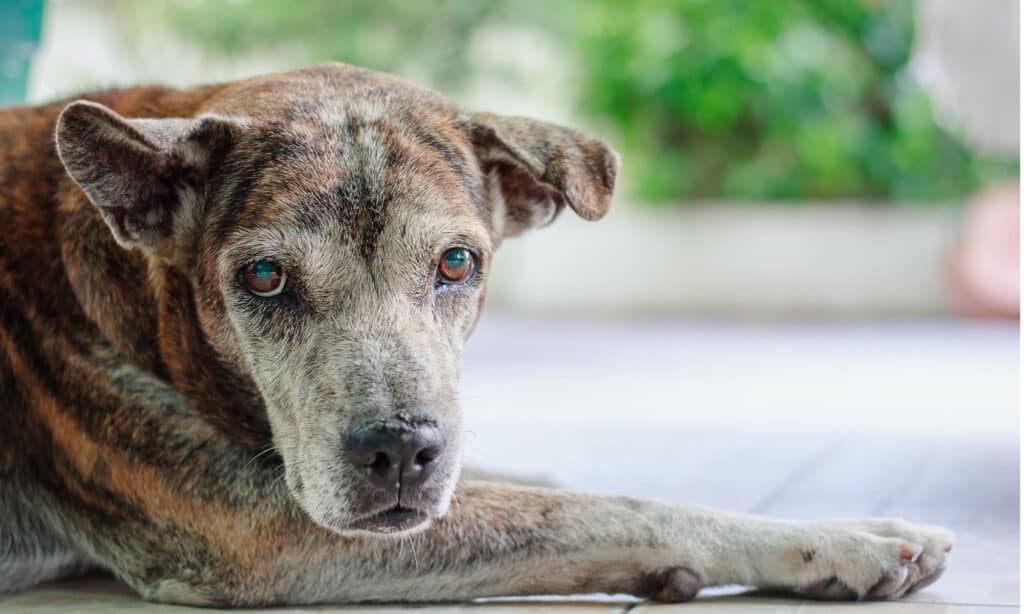
Elderly dogs can suffer from canine dementia, which can manifest in behaviors like staring.
©iStock.com/iamnoonmai
CCD (Canine Cognitive Dysfunction), otherwise known as Canine Dementia, can occur in older dogs. Even though there is no definitive test that determines if that is what’s going on with your older dog, there is a list of symptoms and medical conditions your Veterinarian will rule out, like liver disease, before diagnosing your pet. If your dog is elderly, showing signs of disorientation, having accidents in the house,
and acting withdrawn or more aloof, it could be possible that the cause of the wall staring is CCD.
While your senior dog is aging, it’s important to feed them a healthy, age-appropriate diet. Fatty acids and other natural supplements are proven to help support cognitive function.
- A thoughtful blend of nutrients and fiber boosts digestive health
- Savory stew is attractive to even the pickiest senior eater
- Available in both beef and chicken flavors
- Minerals help support heart and kidney health
- Made in the USA and taste-tested and approved by dogs at the Hill's Pet Nutrition Center
Toys, like puzzle toys, also help with mental stimulation.
- Helps teach man’s best friend three unique foraging skills
- An intermediate toy that will bring a challenge to dogs of all sizes
- Everything is removable for easy cleaning
- Provides mental stimulation to keep your dog alert
6. Liver Disease

Your dog staring at the wall could indicate an illness like liver disease.
©Prystai/Shutterstock.com
The liver functions as the body’s filtering system, breaking down toxins before sending them to the kidneys to be pushed out of the body. When the liver is not working correctly, it can’t properly break down the ammonia that your dog produces when eating food. As a result, the ammonia can build up in their bodies, eventually reaching their brain. Once ammonia reaches the brain, it can cause deterioration that affects mental functions. A brain disorder that is due to liver disease is called Hepatic encephalopathy.
Sometimes when a dog is showing neurological symptoms, the cause of that disorder can be due to the liver. Your veterinarian will do a full workup to rule out other conditions and diseases for neurological conditions.
For diseases like Hepatic Encephalopathy caused by the liver, some early symptoms include dull behavior, confusion, and dark urine. If your dog is known to have liver disease, has other symptoms, and is staring at the wall, it’s best to follow up with the Veterinarian.
It’s essential for pets with liver disease to eat a proper diet that promotes a healthy liver and see the veterinarian regularly to maintain their illness.
- Designed specifically for liver disease in dogs
- Helps remove toxins from the blood
- Promote immunity
- Contains S+OXSHEILD that reduce calcium oxalate crystals
7. Head Pressing
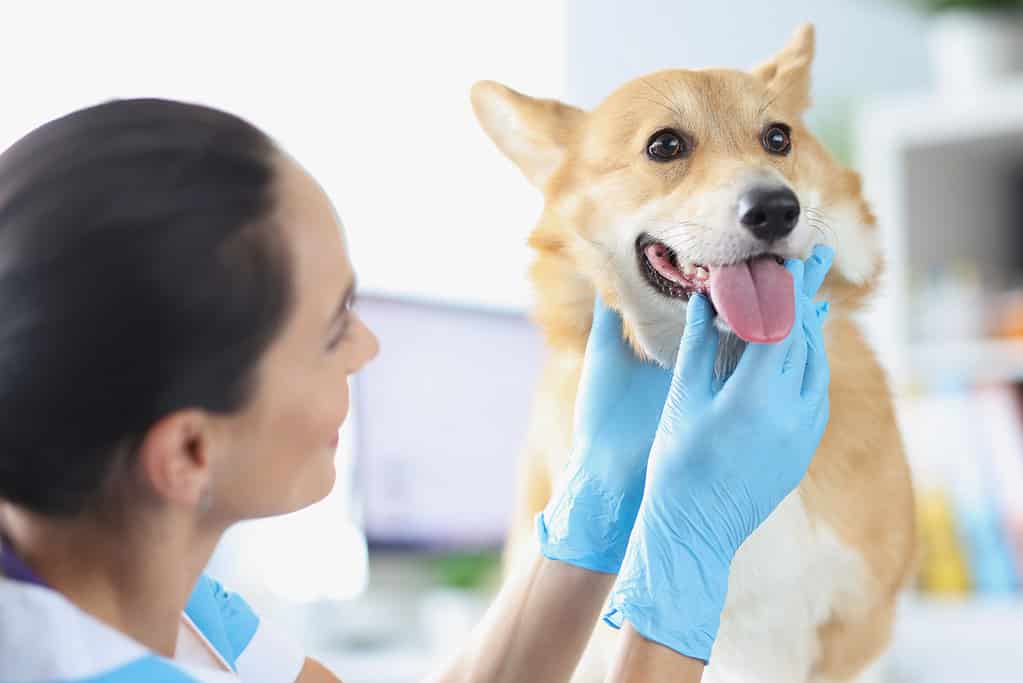
Head pressing is a compulsive behavior that would warrant a visit to the veterinarian.
©megaflopp/iStock via Getty Images
Head pressing can mean an emergency. It’s often a Compulsive Behavior for a dog when they are in severe discomfort. If your dog is leaning against the wall with its head pressed to it and exhibiting other concerning signs like a sudden change in behavior, lethargy, accidents in the house, getting stuck in corners, reach out to a veterinarian. The cause of head pressing can be a wide range of things like viral infection, head trauma, and even metabolic disease.
8. Diabetes Or Loss Of Vision
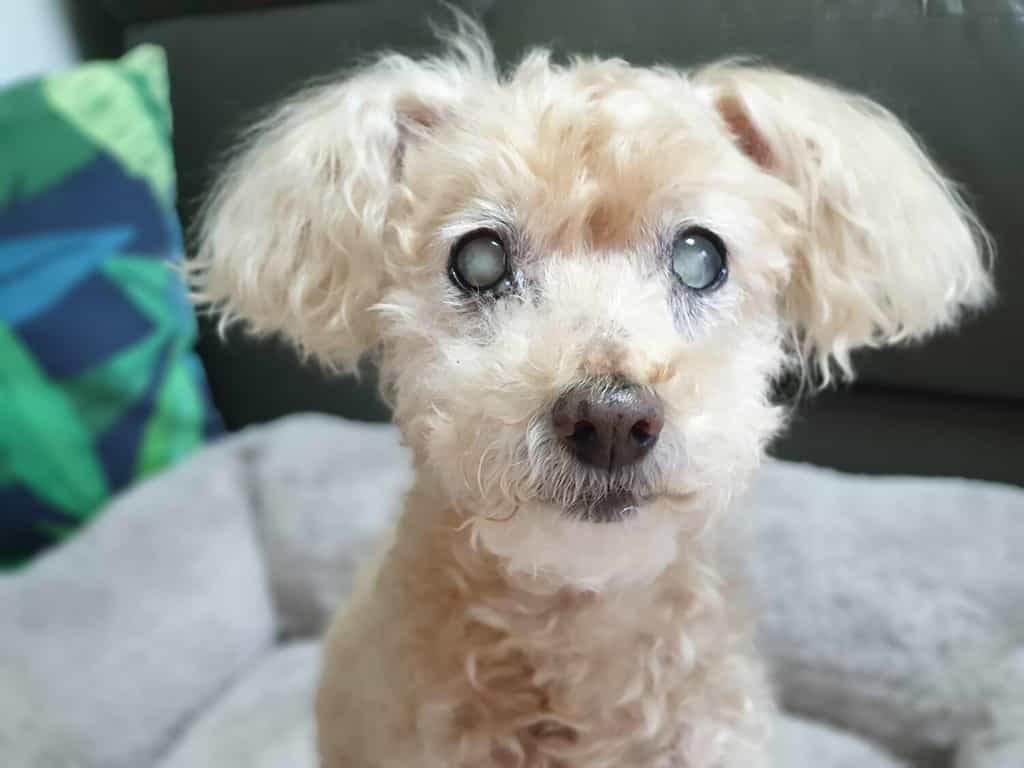
Dogs with vision problems or blindness will stare at the wall or other directions for long periods of time.
©selvaco/Shutterstock.com
Most owners with diabetic pets know all too well that it can affect your pet’s vision and lead to blindness in some severe cases. Other conditions can cause vision loss, and in most cases, when your blind pet is staring at the wall, it just happens to be where they are positioned.
If you notice your pet bumping into things or staring at the wall for prolonged periods, it could be due to vision loss, or if paired with lethargy, increased thirst, or urination, diabetes could cause those symptoms.
Any type of extreme behavior change, lethargy, and loss of appetite for a diabetic pet should be treated as an emergency and seen that day.
- Made from freeze-dried chicken, lamb, and beef liver
- Suitable for all dogs
- Treats can easily be broken down into smaller pieces
- Great option for dogs that suffer from obesity and digestive issues
Don’t Panic. Gather All The Facts!
Pay attention to your pet’s overall behavior. Suppose it’s a rare thing, and your pet is acting normal otherwise, then more than likely. In that case, it’s an attention-seeking behavior and can be diverted with another physical or mental stimulating activity. A bored puppy will find other ways to entertain itself, so taking them on long walks and buying dog-safe toys is important. Training is also a great way to bond with and engage your dog at home when the weather is keeping you inside.
You should rule out if it’s a medical condition. It’s important to ask yourself the basic questions, is my dog eating and drinking okay? Is my dog lethargic? Are they using the bathroom okay? Are there other behaviors that are also concerning me? If they have other issues going on, then it’s a good idea to bring your pet to the Veterinarian with a video of the behavior, so they can make sure everything is okay with your pet.
And hey! Maybe you might just find out that your dog is just a big ol’ oddball.
Summary of 8 Reasons Your Dog Is Staring at the Wall
| Reason | |
|---|---|
| 1 | They Sense Something |
| 2 | Attention Seeking Behavior |
| 3 | Compulsive Behavior |
| 4 | Focal Point Seizures |
| 5 | Canine Cognitive Dysfunction |
| 6 | Liver Disease |
| 7 | Head Pressing |
| 8 | Diabetes Or Loss Of Vision |
How Do I Know if my Dog is in Pain?
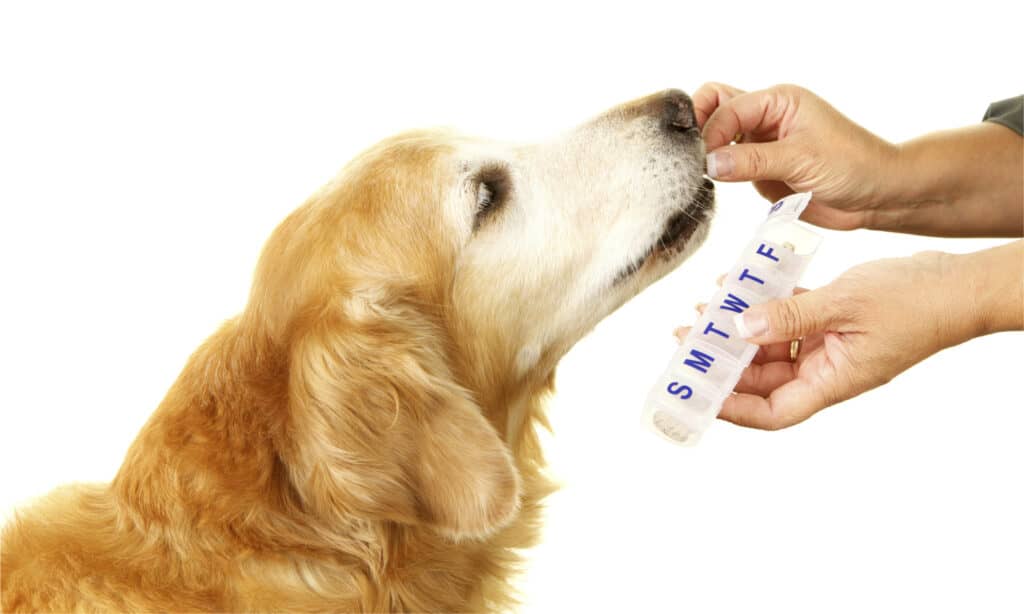
Certain medicines, Gabapentin, are used for pain management in dogs.
©Donna Ellen Coleman/Shutterstock.com
In some cases, when your dog stares at the wall it may indicate serious medical issues. They may not be able to tell you what ails them but at times, their actions can show you. There are certain signs that may accompany this behavior that can alert you to their discomfort. Some of the signs may be:
- Licking themselves in a certain area
- Drooling or Panting
- Limping
- Whimpering
These symptoms may be short-lived and last for less than one day but should they continue, it is important that you take them to your vet for further evaluation and they can get the treatment they need.
The photo featured at the top of this post is © Anastasiia Cherniavskaia/Shutterstock.com
Ready to discover the top 10 cutest dog breeds in the entire world?
How about the fastest dogs, the largest dogs and those that are -- quite frankly -- just the kindest dogs on the planet? Each day, AZ Animals sends out lists just like this to our thousands of email subscribers. And the best part? It's FREE. Join today by entering your email below.
Thank you for reading! Have some feedback for us? Contact the AZ Animals editorial team.



